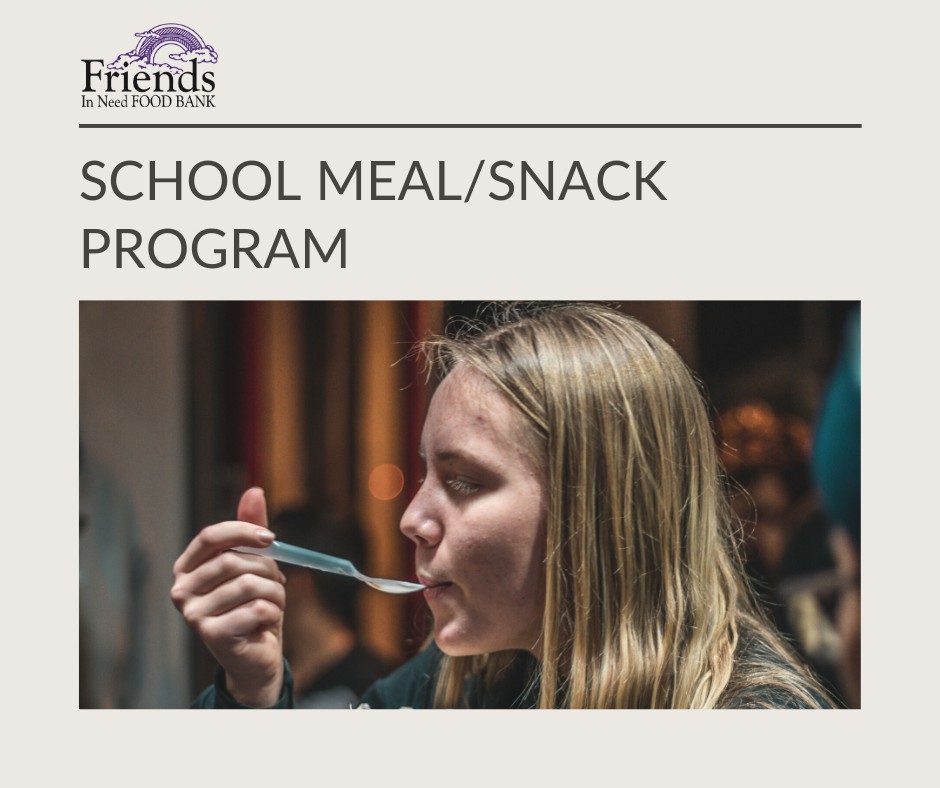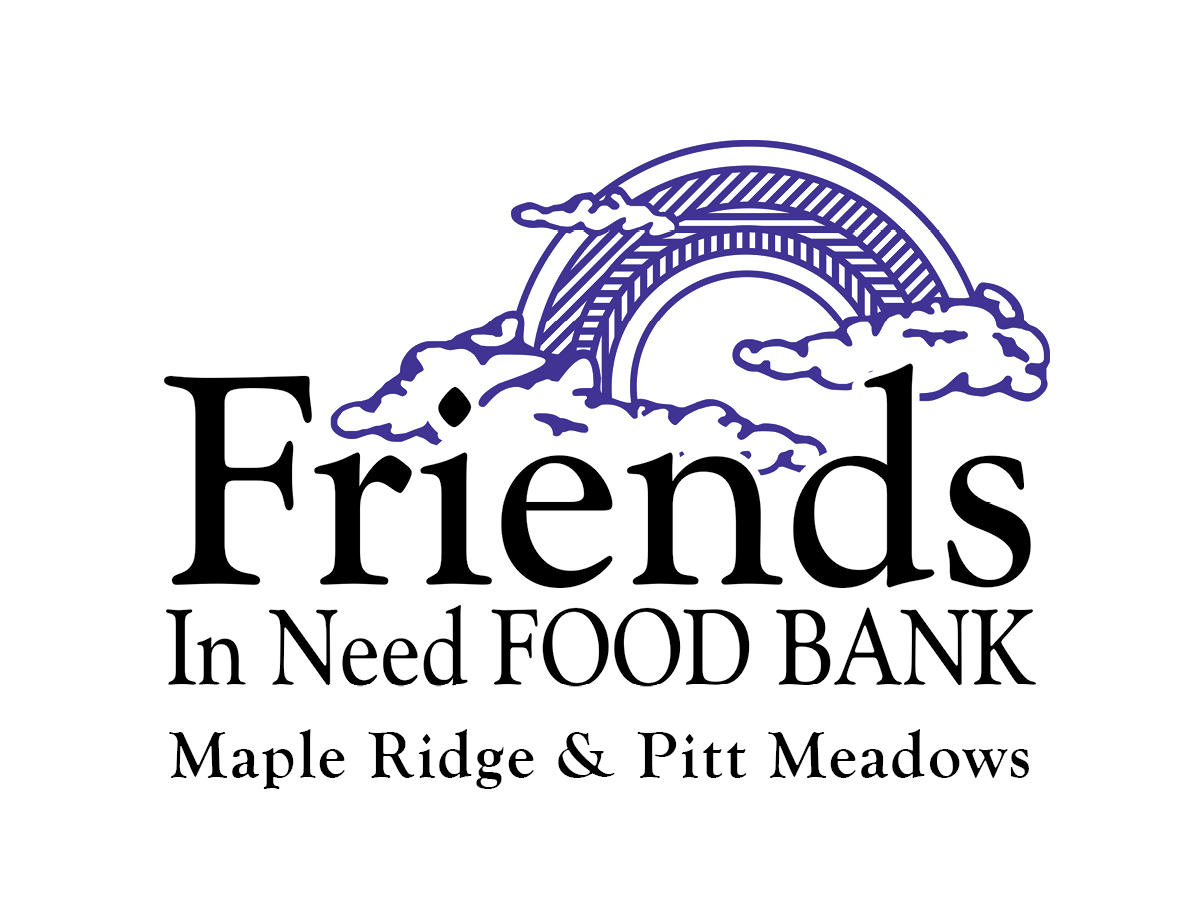Friends in Need FOOD BANK
Registered Name: FRIENDS IN NEED FOOD BANK SOCIETY
Business No: 889138772RR0001
This organization is designated by Canada Revenue Agency (CRA) as a registered charity. They comply with the CRA's requirements and has been issued a charitable registration number.
The Friends in Need Food Bank serves Maple Ridge and Pitt Meadows, BC. Our goal is to ensure no one in our community goes hungry.

Donate to this charity
Give in honour or send an ecard (optional)
Our Mission
The Friends in Need FOOD BANK exists to provide for the hungry in the Maple Ridge and Pitt Meadows communities, to inform and refer when needed, and to raise the awareness concerning food security.
Our Programs
We are the registered food bank for Maple Ridge/Pitt Meadows and are a member of Food Banks Canada and Food Banks BC.
The Friends in Need Food Bank runs several programs to bring food to our community through our Maple Ridge Food Bank, Pitt Meadows Food Bank, Seniors Food Bank, Home Delivery Program, School Meal/Snack Program and Perishable Food Recovery Program.
Further, we provide food to over 20 other agencies and non-profit organizations within our community who have identified a need for food security. By working together, we can get closer to our goal of ensuring no one in our community ever goes hungry.
Perishable Food Recovery
In June 2019, we expanded our Perishable Food Recovery Program. This program connects us with perishable food in the community previously destined for the landfills. In June 2024 we celebrated five years in Perishable Food Recovery and have repurposed more than 6 million pounds of food with 70% going to human consumption and the balance going to farm feed and compost.
Every day, we pick up totes from our local grocers containing perishable food. At our facility, we sort it into three categories:
1. Food fit for human consumption, which we distribute through the Food Bank and our community partners.
2. Fit for animal feed, which local farmers pick up to feed their animals.
3. Compost.
We are proud to be part of the solution of reducing food waste in our community and increasing the amount of food we can share with those in need. By diverting food from the landfills, we also contribute to reducing the carbon footprint in our community. To date, October 2024 we have saved more than 7.3 million kilograms of CO2 emissions.

supporter wall
Pamela W donated $500.00!
Thank you for all the wonderful work you do!
Jennifer B donated $50.00!
Thank you for all the hard work you do!
Oskar Construction donated $100.00!
For renovations
Mary Ann C donated $100.00!
Many thanks for all your work
Patricia R donated $100.00!
Thank you...keep up the good work!
Michelle W donated $50.00!
I heart every volunteer to help feed the needy in Maple Ridge-I know the donatio...

